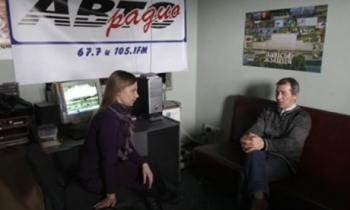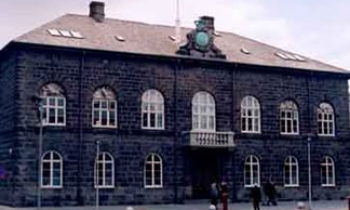KARACHI, Dec 1 (IPS) - ''I just reported the truth,'' says 38-year-old Dilawar Wazir Khan wearily, explaining to IPS over the telephone why he was kidnapped and tortured.
The last journalist left reporting from South Waziristan, one of the troubled tribal regions bordering Afghanistan, Dilawar Khan works for the Urdu language service of the British Broadcasting Corporation (BBC) and Pakistan's English daily ‘Dawn'. ''Many of my colleagues have given up their profession and others have left the area.''
Having escaped two earlier attempts on his life, Dilawar Khan became the latest target of what journalists swear is Pakistan's notorious Inter Services Intelligence (ISI). Earlier this month, the Supreme Court had reprimanded the government for disregarding citizens' rights after the families of 41 people who had gone missing moved habeas corpus petitions.
After an attempt on Dilawar Khan's life left two colleagues, Allah Noor Wazir and Amir Nawab, dead and his 15-year-old brother Taimur was kidnapped and murdered in 2005, Khan though it prudent to move out of his hometown of Wana, in South Waziristan, to Dera Ismail Khan in the North West frontier Province (NWFP). "Now I don't know where to find refuge. No place seems safe enough. This time I was lucky and came home almost unscathed but I am not sure if I'll be this lucky the next time."
And yet he refuses to put his pen down. "I will continue to write and report from there. I don't write against the military or the militants, I just report what is happening and give points of view from both sides," he says simply.
Kept blindfolded and fettered, he was tortured for 30 hours before being released. He was probably saved by protests from journalists' unions and a call to boycott of parliamentary proceedings. International media organisations chipped in. The BBC Urdu service carried the story of his abduction for two consecutive days and World Service director Nigel Chapman called on the Pakistani government to ascertain his whereabouts.
In a statement after his release on Nov. 21, Joel Simon, executive director of the New York-based, Committee to Protect Journalists (CPJ), said: "The public outcry that followed Dilawar Khan's disappearance should not end now that he has been released. The disappearances and deaths of several Pakistani journalists have gone unexplained, uninvestigated, and unreported by the authorities. Police and courts must bring to justice the people who harm and intimidate journalists."
Though free, he refuses to divulge any information about who kidnapped him or what they did to him. "I can't tell you as I've been threatened with dire consequences. I'm not scared for myself but I've caused enough trauma and pain to my family because of my profession. I fear for their lives. It was because of me and my work that my brother was killed. It was to teach me a lesson and to bring me down to my knees."
"Dilawar was abducted because his story in Dawn about the peace deal in North Waziristan proved that it was signed by militants not by local tribal elders. He was released because Dawn published the vehicle number that belonged to the ISI in which he was taken away," says Hamid Mir, an Urdu language columnist and anchor of a popular TV talk show on current affairs.
After waging war against the Taliban in Pakistan's rugged border areas, in support of the U.S. -led ‘war-on-terror' in Afghanistan, President Gen. Pervez Musharraf signed a truce with the ‘scholars' in June and followed it up with a comprehensive pact with what was claimed to be tribal elders.
Mir said he has himself been "an anti-state element" by the Pakistan army and has been receiving numerous threats for his coverage of the insurgency in Balochistan province and for writing about the assassination of his friend Hayatullah Khan, another journalist from North Waziristan.
Tracing the history of abductions of journalists, Mazhar Abbas, secretary of Pakistan Federation of Unions of Journalists (PFUJ), said the first such incident took place in the 1990s when a senior Islamabad-based reporter Humayun Fahr was detained by the ISI for "working against the national interest."
Arrested under the Official Secrets Act, he was sentenced to death by court martial. In view of the "strong protest lodged by the PFUJ, and keeping in consideration his deteriorating health condition" he was released, though he died shortly after that, Abbas said.
While illegal detentions of journalists happen all over the world, those who are on dangerous assignments are more at risk, says Abbas. The latest wave, according to him, is a "gift of the ‘war on terror'.''
"But, while international newspaper organisations look after the well-being of their journalists, giving extra allowances to those working in the conflict zones and providing full insurance, here the poor journalists get no such facilities. Look at the cases of all those killed or abducted. They were neither regular employees, nor insured -- and there was little compensation. We simply have no concept of providing training for those working in conflict areas."
Terming these abductions as "harassment and intimidation,'' Kamila Hayat, joint director of the Human Rights Commission of Pakistan (HRCP), says that the commission recorded at least 20 complaints, this year, of atrocities on journalists, four whom died.
"Even where the government or agencies are not directly involved in threatening journalists, it is obvious they have failed to provide them the security they require to carry out their professional duties," she says, adding: ''It is part of a broader campaign to stifle dissent, opposing opinions and embarrassing news through intimidation."
While the last few years have seen private TV channels giving a new meaning to journalism and the media enjoying a measure of freedom, the downside is that this ever expanding media has exposed its journalists to the dangers of reporting from sensitive areas.
"Initially Musharraf gave full freedom to the media because he wanted to take advantage of that freedom against (former prime minister) Nawaz Sharif. But the situation changed after 9/11, when Musharraf became an ally of the United States and he was given a free hand by the West," says Mir.
"If you ask me, the media is not free in Pakistan. If some columnists are openly criticising the government or some opposition leaders are appearing on some TV talk shows, this freedom is not given by Musharraf. This is an international wave. We are exercising this right to freedom by taking lot of risks. Everyone is paying for that freedom. Take the example of Geo and ARY (another private TV channel).Why are their transmission centres not in Pakistan? Why are they paying heavy expenses (for location) in Dubai?" Answering his own question, he said: "Because they don't have permanent uplinking licence for Pakistan. They get an uplinking licence on monthly basis. The government can ban any channel anytime, like they banned Sindh TV recently."
Journalism, commented Mir, is become a ‘'dangerous profession not just in Wana but also in Islamabad." With the experience of reporting from the war-torn areas of Afghanistan, Iraq, Lebanon, Jaffna, Bosnia, and Chechnya, he says that North and South Waziristan are tougher places to work in. "It's easier to travel in Afghanistan with legal documents, but unsafe for Pakistani journalists to travel in their own tribal areas."









